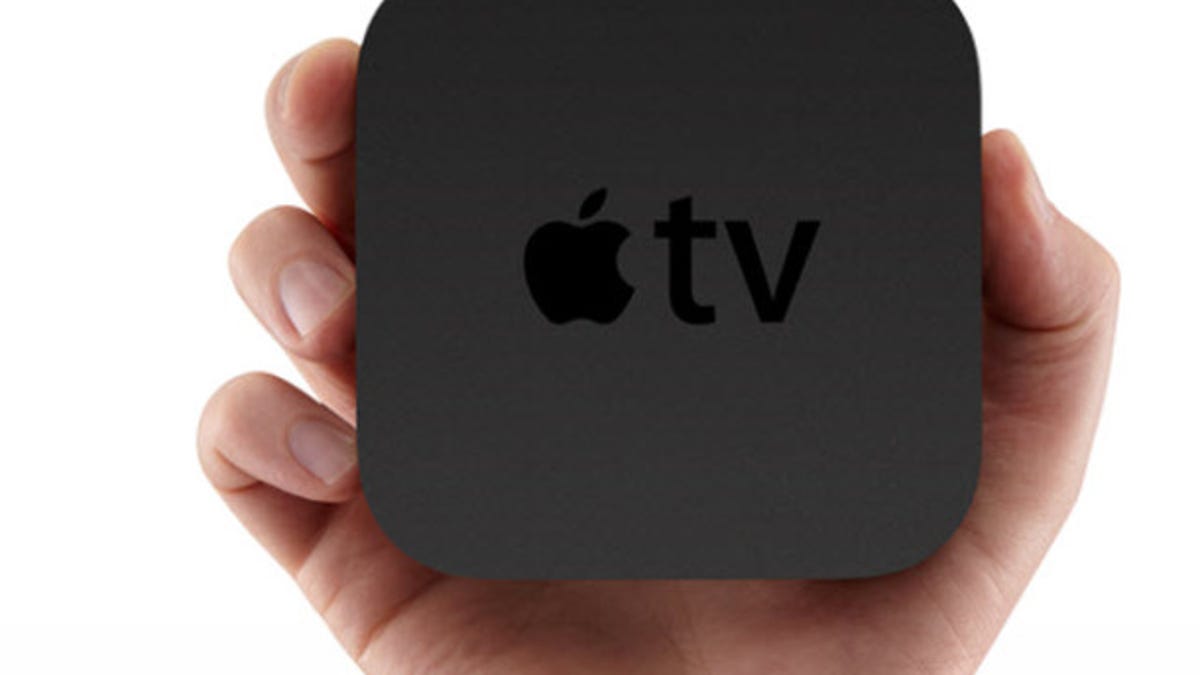Tim Cook: Apple TV did over $1B in 2013 revenue
At Apple's annual gathering of shareholders, CEO Tim Cook said the product is more than a "hobby."

"That hobby was over a billion dollars of revenue last year," Cook said during the company's annual meeting with shareholders here. "It's a little hard to call it a hobby anymore."
The billion-dollar figure includes content sales conducted by Apple on the platform -- like movies and TV shows -- and not just hardware sales of its set-top box. At Friday's meeting, Cook did not specify the breakdown between the two revenue streams.
Still, the milestone means the product is getting attention from consumers. A little over a year ago, Cook announced that in the first quarter of the 2013 fiscal year, the company sold more than 2 million Apple TVs, up from 1.4 million a year before. (Although it's worth noting that Apple's first quarter includes results from the holiday shopping season.)
The company also is said to be refreshing the product during the first half of this year, but the update is reportedly to enhance its content experience -- possibly adding a game center and a version of the App Store.
Still, a billion dollars is less than one percent of the company's total net sales last year. And the set-top box is far from what many fans have wanted for a long time -- a full-fledged Apple TV set. Cook has said that the company will be entering new product categories this year. And on Friday, he had a little fun with all the anticipation. "I'd like to unveil some new products today," he said, as an overflow room full of reporters gasped. "I was just kidding about that last part," he added, grinning.
But on the topic of innovation and research and development, Cook did say that the company has acquired 23 companies in the last 16 months. Thus far, the company's recent playbook has been to buy out smaller companies for technological gains, and Cook reiterated the point on Friday. "We're not in a race to pay the most. Not in a race to get the headline," he said, likely a veiled reference to Facebook's blockbuster acquisition of messaging service WhatsApp for as much as $19 billion. But he didn't rule out a splashy buy. "That doesn't mean we won't buy a big company tomorrow afternoon."
At the meeting, all of the motions proposed by Apple to shareholders were approved, while the motions proposed by individual investors were denied.
The gathering was originally billed in the press as a showdown between activist investor Carl Icahn and Apple over the company's buyback program. Icahn has been vocal about Apple repurchasing more of its stock. In December, he announced a nonbinding proposal for Apple shareholders to vote on a buyback at Friday's meeting.
But Icahn then announced earlier this month that he would pull the proposal, mainly because the Institutional Shareholder Services, a trade organization, urged shareholders to vote against it, and because Apple had increased the volume of its stock repurchasing. After investor disappointment over first-quarter results, Cook announced that the company had bought back $14 billion worth of shares in two weeks. The company is said to be on course to repurchase $32 billion by year's end, just $18 billion off Icahn's $50 billion sum.
Still, Cook said on Friday that the company is deliberating its buyback decisions, and will issue an update of its plans in the next 60 days.
But even without the Icahn drama, the meeting was not without its excitement. A group of Silicon Valley security guards -- including Apple's own -- held a protest outside the building demanding more secure contracts for the guards. The demonstration was just another example of the culture clash engulfing the tech industry in Silicon Valley and the Bay Area.

